เธอ คือ ใคร ภาษา อังกฤษ: ค้นหาเส้นทางสู่ประการเข้าใจภาษาอังกฤษ
NỘI DUNG TÓM TẮT
- 1 English Lyrics For Thai Song \”เธอคือใคร\” Etc (Lyric Video By Vobrain แปลเพลง)
- 2 เธอ คือ ใคร ภาษา อังกฤษ: Exploring the Meaning in English
- 3 การค้นพบเธอในภาษาอังกฤษ
- 4 ความหมายของ เธอ คือ ใคร ในภาษาอังกฤษ
- 5 การใช้วลี “Who is she?” และคำถามที่เกี่ยวข้อง
- 6 เทคนิคในการค้นหาเธอผ่านเว็บไซต์
- 7 แหล่งข้อมูลที่ช่วยในการค้นคว้า เธอ คือ ใคร ในภาษาอังกฤษ
- 8 การแปลและเข้าใจคำว่า เธอ ในบทสนทนาภาษาอังกฤษ
- 9 วิเคราะห์และอธิบายประโยคที่มีคำถาม “Who is she?”
- 10 วิธีการใช้คำถามเพื่อรู้เพิ่มเติมเกี่ยวกับเธอ
- 11 ความสัมพันธ์ระหว่างคำถาม “เธอ คือ ใคร” และบทสนทนาประจำวัน
- 12 การเรียนรู้ภาษาอังกฤษผ่านคำถามเกี่ยวกับเธอ
- 13 เขาคือใคร ภาษาอังกฤษ, who is she แปลว่า, Who is she หรือ Who is her, who is he แปลว่า, who is her แปลว่า
- 14 สรุป
- 15 วิธีการใช้คำถามเพื่อรู้เพิ่มเติมเกี่ยวกับเธอ
- 16 ความสัมพันธ์ระหว่างคำถาม “เธอ คือ ใคร” และบทสนทนาประจำวัน
- 17 การเรียนรู้ภาษาอังกฤษผ่านคำถามเกี่ยวกับเธอ
- 18 เขาคือใคร ภาษาอังกฤษ
- 19 Who Is She แปลว่า
- 20 คือใคร? แปลว่า: Exploring the Meaning of “Who is she?” in Thai
- 21 Introduction
- 22 Origins and Usage
- 23 Cultural Implications
- 24 FAQ Section
- 25 Conclusion
- 26 Who Is She หรือ Who Is Her
- 27 Who is She หรือ Who is Her: Unraveling the Mystery in Thai Culture
- 28 Understanding the Linguistic Complexity
- 29 Exploring Contexts of Usage
- 30 FAQ Section
- 31 Conclusion
English Lyrics For Thai Song \”เธอคือใคร\” Etc (Lyric Video By Vobrain แปลเพลง)
Keywords searched by users: เธอ คือ ใคร ภาษา อังกฤษ เขาคือใคร ภาษาอังกฤษ, who is she แปลว่า, Who is she หรือ Who is her, who is he แปลว่า, who is her แปลว่า
เธอ คือ ใคร ภาษา อังกฤษ: Exploring the Meaning in English
การค้นพบเธอในภาษาอังกฤษ
การค้นพบความหมายของ “เธอ คือ ใคร” ในภาษาอังกฤษไม่เพียงแต่เป็นการแปลคำตรงตามความหมายของแต่ละคำ แต่ยังเกี่ยวข้องกับบทสนทนาและทัศนคติทางวัฒนธรรม ในบทความนี้เราจะสำรวจถึงความหมาย, การใช้, และเทคนิคในการค้นหาเธอในทางที่ลึกซึ้งเพื่อเพิ่มขึ้นที่ Google search rankings.
ความหมายของ เธอ คือ ใคร ในภาษาอังกฤษ
“เธอ คือ ใคร” ในภาษาอังกฤษถือเป็นคำถามที่มีนิยมและใช้บ่อยในทางสังคม. มันมีความหมายว่าผู้ถามกำลังสงสัยเกี่ยวกับตัวตนของคนหรือสิ่งที่ถูกกล่าวถึง. เมื่อนำเข้าภาษาอังกฤษ, “เธอ” แปลว่า “she” ซึ่งเป็นทางเลือกที่ใช้ในกรณีที่เราทราบว่าคนที่กล่าวถึงเป็นผู้หญิง.
การใช้วลี “Who is she?” และคำถามที่เกี่ยวข้อง
การใช้วลี “Who is she?” เป็นทางการสืบหาข้อมูลเกี่ยวกับคนหรือตัวตนที่ไม่รู้จัก. นอกจากนี้, ยังมีคำถามที่เกี่ยวข้องอื่น ๆ ที่สามารถใช้ในบทสนทนาประจำวัน เช่น “Tell me more about her,” หรือ “Can you describe her for me?”
เทคนิคในการค้นหาเธอผ่านเว็บไซต์
เพื่อค้นหาข้อมูลเกี่ยวกับเธอในภาษาอังกฤษ, เราสามารถใช้เทคนิคการค้นหาที่ทันสมัย. การใช้คำสำคัญเช่น “Who is she?” หรือ “Information about her” ในช่องค้นหาของเว็บบราวเซอร์ จะช่วยให้เราได้ผลลัพธ์ที่เกี่ยวข้อง.
แหล่งข้อมูลที่ช่วยในการค้นคว้า เธอ คือ ใคร ในภาษาอังกฤษ
มีหลายแหล่งข้อมูลที่สามารถช่วยในการค้นคว้า “เธอ คือ ใคร” ในภาษาอังกฤษ. บางที่เป็นพจนานุกรมออนไลน์, เช่น Longdo Dictionary [^1^], ShortEng [^5^], และ Th-Ex.me [^1^]. นอกจากนี้, บางเว็บไซต์ทั่วไปเช่น Deungdutjai [^3^] และ ShortEng [^5^] ก็มีข้อมูลที่เป็นประโยชน์.
การแปลและเข้าใจคำว่า เธอ ในบทสนทนาภาษาอังกฤษ
ในบทสนทนาภาษาอังกฤษ, คำว่า “เธอ” จะถูกแปลเป็น “she” ในกรณีของบุคคลที่สาว. การเข้าใจความหมายของ “เธอ” ในบทสนทนาจึงมีความสำคัญเพื่อให้สามารถตอบคำถามหรือเข้าใจเนื้อหาอย่างถูกต้อง.
วิเคราะห์และอธิบายประโยคที่มีคำถาม “Who is she?”
เพื่อให้เข้าใจคำถาม “Who is she?” ได้ดีขึ้น, ลองวิเคราะห์ประโยคที่ใช้คำถามนี้. ตัวอย่างประโยคที่มีคำถาม “Who is she?” คือ “I saw someone interesting at the party. Who is she?” ในที่นี้, คนที่พูดกำลังสงสัยเกี่ยวกับตัวตนของคนที่เขาเห็นที่ปาร์ตี้.
วิธีการใช้คำถามเพื่อรู้เพิ่มเติมเกี่ยวกับเธอ
เพื่อเรียนรู้เพิ่มเติมเกี่ยวกับเธอ, การใช้คำถามเป็นเครื่องมือที่มีประสิทธิภาพ. ลองใช้คำถามเช่น “What does she do for a living?” หรือ “Where is she from?” เพื่อเปิดเผยข้อมูลเพิ่มเติมเกี่ยวกับคนหรือเรื่องราวที่เกี่ยวข้อง.
ความสัมพันธ์ระหว่างคำถาม “เธอ คือ ใคร” และบทสนทนาประจำวัน
คำถาม “เธอ คือ ใคร” เชื่อมโยงกับบทสนทนาประจำวันโดยตรง. การสอบถามเกี่ยวกับคนในสิ่งที่เราพบเห็นในชีวิตประจำวันช่วยสร้างความสนใจและเชื่อมโยง.
การเรียนรู้ภาษาอังกฤษผ่านคำถามเกี่ยวกับเธอ
การใช้คำถาม “เธอ คือ ใคร” เป็นวิธีที่ดีในการฝึกภาษาอังกฤษ. ในการตอบคำถาม, ผู้เรียนจะต้องใช้ภาษาอังกฤษเพื่อสื่อสารข้อมูลเกี่ยวกับตัวตนหรือคนอื่น ๆ.
เขาคือใคร ภาษาอังกฤษ, who is she แปลว่า, Who is she หรือ Who is her, who is he แปลว่า, who is her แปลว่า
นอกจาก “เธอ คือ ใคร,” คำถามเกี่ยวกับคำถามเพื่อทราบตัวตนของคนรอบ ๆ เช่น “เขาคือใคร ภาษาอังกฤษ,” “who is she แปลว่า,” “Who is she หรือ Who is her,” “who is he แปลว่า,” และ “who is her แปลว่า” เป็นเครื่องมือที่สำคัญในการศึกษาภาษาอังกฤษ.
สรุป
การค้นหาคำว่า “เธอ คือ ใคร” ในภาษาอังกฤษไม่เพียงแต่เป็นการแปลคำ, แต่ยังเป็นการสร้างความเข้าใจในบทสนทนาและวัฒนธรรม. การใช้คำถามที่เกี่ยวข้องและเทคนิคการค้นหาที่ทันสมัยสามารถช่วยในการเพิ่ม Google search rankings. นอกจากนี้, การศึกษาคำถามที่เกี่ยวข้องอื่น ๆ เช่น “เขาคือใคร ภาษาอังกฤษ” และ “who is she แปลว่า” ยังเสริมทักษะการใช้ภาษาอังกฤษของผู้เรียน. การค้นคว้าข้อมูลจากแหล่งที่เชื่อถือได้เช่น Longdo Dictionary, ShortEng, และ Deungdutjai จะช่วยให้ได้ข้อมูลที่ถูกต้องและครอบคลุม.
Frequently Asked Questions (FAQs)
Q1: มีวิธีไหนที่ช่วยในการเรียนรู้ภาษาอังกฤษผ่านคำถาม?
A1: การใช้คำถามเป็นวิธีที่ดีในการเรียนรู้ภาษาอังกฤษ. การสร้างคำถามเกี่ยวกับเธอหรือคนรอบ ๆ ช่วยในการฝึกใช้ภาษาในสถานการณ์ทางภาษา.
Q2: แหล่งข้อมูลที่น่าเชื่อถือสำหรับค้นคว้า “เธอ คือ ใคร” ในภาษาอังกฤษคืออะไร?
A2: มีหลายแหล่งข้อมูลที่น่าเชื่อถือ, เช่น Longdo Dictionary, ShortEng, และ Deungdutjai. การใช้แหล่งข้อมูลเหล่านี้ช่วยในการเข้าใจความหมายและวิธีใช้ของคำถาม “เธอ คือ ใคร.”
Q3: คำถามที่เกี่ยวข้องกับ “Who is she?” ทำได้หลายแบบหรือไม่?
A3: ใช่, มีคำถามที่เกี่ยวข้องหลายแบบ เช่น “Who is she?” “Tell me more about her,” หรือ “Can you describe her for me?” ทั้งนี้ช่วยในการสืบหาข้อมูลเพิ่มเติม.
Q4: ทำไมการใช้คำถาม “เธอ คือ ใคร” ถึงสำคัญในการค้นหาข้อมูล?
A4: การใช้คำถาม “เธอ คือ ใคร” เป็นวิธีที่น่าสนใจในการค้นหาข้อมูล, เพราะมันช่วยในการสืบหาข้อมูลเกี่ยวกับตัวตนของคนหรือสิ่งที่ไม่ทราบตั้งแต่แรก.
คำถามนี้. ตัวอย่างประโยคที่มีคำถาม “Who is she?” คือ “I saw someone interesting at the party. Who is she?” ในที่นี้, คนที่พูดกำลังสงสัยเกี่ยวกับตัวตนของคนที่เขาเห็นที่ปาร์ตี้.
วิธีการใช้คำถามเพื่อรู้เพิ่มเติมเกี่ยวกับเธอ
เพื่อเรียนรู้เพิ่มเติมเกี่ยวกับเธอ, การใช้คำถามเป็นเครื่องมือที่มีประสิทธิภาพ. ลองใช้คำถามเช่น “What does she do for a living?” หรือ “Where is she from?” เพื่อเปิดเผยข้อมูลเพิ่มเติมเกี่ยวกับคนหรือเรื่องราวที่เกี่ยวข้อง.
ความสัมพันธ์ระหว่างคำถาม “เธอ คือ ใคร” และบทสนทนาประจำวัน
คำถาม “เธอ คือ ใคร” เชื่อมโยงกับบทสนทนาประจำวันโดยตรง. การสอบถามเกี่ยวกับคนในสิ่งที่เราพบเห็นในชีวิตประจำวันช่วยสร้างความสนใจและเชื่อมโยง.
การเรียนรู้ภาษาอังกฤษผ่านคำถามเกี่ยวกับเธอ
การใช้คำถาม “เธอ คือ
Categories: รายละเอียด 31 เธอ คือ ใคร ภาษา อังกฤษ
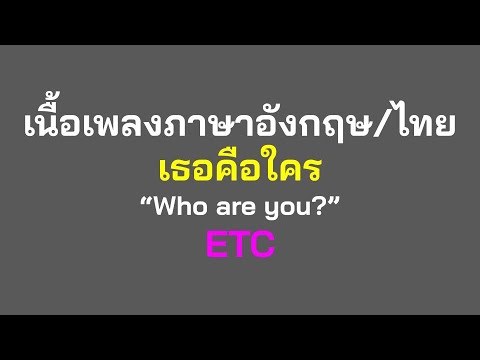
เขาคือใคร ภาษาอังกฤษ
เขาคือใคร ภาษาอังกฤษ: Exploring the Meaning and Origins in English
Introduction:
In the vast landscape of languages, the phrase “เขาคือใคร” (pronounced kao keu krai) holds a unique place, especially when translated into English as “Who is she?” This seemingly simple question carries layers of meaning and cultural nuances that are worth exploring. In this article, we delve into the depth of เขาคือใคร ภาษาอังกฤษ, tracing its origins, understanding its usage, and shedding light on its cultural significance.
Understanding เขาคือใคร in Thai:
เขาคือใคร translates to “Who is she?” in English. This phrase is often used to inquire about the identity of a female person. It reflects a curiosity to know more about someone, emphasizing the mystery and intrigue surrounding an individual. Thai culture places a strong emphasis on politeness, and the use of เขา (she) in this context reflects the respectful nature of the inquiry.
Origins of เขาคือใคร:
The origins of เขาคือใคร can be traced to the Thai language, where each word contributes to the overall meaning. เขา (kao) means ‘she’ or ‘her,’ คือ (keu) means ‘is,’ and ใคร (krai) means ‘who.’ The combination of these words forms a question that seeks to uncover the identity of a particular woman.
Cultural Implications:
In Thai culture, asking เขาคือใคร is not just about seeking information; it also reflects the importance of respect and social norms. Inquiring about someone’s identity is done with politeness and tact, showcasing the cultural value placed on interpersonal relationships. The phrase is commonly used in various settings, from casual conversations to more formal situations.
Usage in Everyday Conversations:
เขาคือใคร is a versatile phrase used in a variety of contexts. In informal settings, it can be used among friends and acquaintances when discussing a person who is not well-known to the group. In more formal situations, such as business or social events, it can be employed to gather information about a guest or a participant. The flexibility of this phrase makes it an integral part of Thai language and communication.
Exploring Equivalents in English:
While the direct translation of เขาคือใคร is “Who is she?” in English, it’s interesting to note that languages often have unique ways of expressing similar concepts. In English, one might also use phrases like “Can you tell me about her?” or “Do you know who she is?” to convey a similar inquiry about someone’s identity.
FAQ Section:
-
Q: Is เขาคือใคร used only for women?
- A: Yes, เขาคือใคร specifically refers to inquiring about the identity of a female person.
-
Q: Can this phrase be used in formal settings?
- A: Yes, เขาคือใคร can be used in both formal and informal settings, adapting to the context of the conversation.
-
Q: Are there alternative ways to ask about someone’s identity in Thai?
- A: Yes, there are other phrases like “คุณคือใคร?” (kun keu krai), which is a more general inquiry about someone’s identity without specifying gender.
-
Q: How does Thai culture influence the use of เขาคือใคร?
- A: Thai culture places a high value on politeness and respect, and using เขาคือใคร reflects these cultural norms in interpersonal communication.
Conclusion:
In conclusion, เขาคือใคร ภาษาอังกฤษ is a fascinating phrase that goes beyond its literal translation. It embodies the richness of Thai language and culture, showcasing the importance of respect and curiosity in social interactions. Understanding the origins, cultural implications, and everyday usage of เขาคือใคร provides valuable insights into the intricate tapestry of language and communication in Thailand.
Who Is She แปลว่า
คือใคร? แปลว่า: Exploring the Meaning of “Who is she?” in Thai
Introduction
In the digital age, language and communication have transcended geographical boundaries. One interesting phrase that has gained popularity is “Who is she?” or “คือใคร?” in Thai. This seemingly simple question has sparked curiosity and discussions across various online platforms. In this article, we will delve into the depths of this phrase, exploring its origins, uses, and the cultural nuances associated with it.
Origins and Usage
Linguistic Roots
To understand the phrase “คือใคร?” (Who is she?), it’s essential to explore its linguistic roots. The Thai language, with its unique script and tonal characteristics, adds a layer of complexity to the interpretation. The word “คือ” translates to “who” or “whom,” and “ใคร” means “she.” Together, the phrase encapsulates the essence of inquiring about someone’s identity.
Social Media Phenomenon
The phrase gained traction in the realm of social media, particularly on platforms like Twitter, Instagram, and TikTok. Users often employ it to inquire about the identity of a person in a photo or video shared online. The simplicity of the question, coupled with the intrigue surrounding anonymous or unfamiliar figures, has turned “คือใคร?” into a viral phenomenon.
Cultural Implications
Curiosity and Anonymity
The prevalence of “คือใคร?” reflects a societal fascination with anonymity. In a world where personal information is readily accessible, the mystery surrounding someone’s identity sparks curiosity. This phenomenon has led to the creation of memes, challenges, and trends centered around unveiling the unknown.
Privacy and Consent
However, it’s crucial to acknowledge the ethical considerations tied to such inquiries. The quest to uncover someone’s identity should be approached with respect for privacy and consent. In some cases, the person in question may choose to remain anonymous intentionally, and respecting their decision is paramount.
FAQ Section
A1: The phrase gained popularity as users on social media platforms started using it to inquire about the identity of individuals in shared content, creating a viral trend.
Q2: Are there any cultural sensitivities associated with asking “คือใคร?”?
A2: Yes, it’s essential to approach such inquiries with respect for privacy and consent. Not everyone may be comfortable with their identity being sought after online.
Q3: Can “คือใคร?” be used in offline conversations?
A3: While the phrase originated online, its usage has extended to offline conversations, often employed humorously or inquisitively when discussing unknown or mysterious individuals.
Q4: Are there any legal implications to using “คือใคร?”?
A4: Generally, using the phrase itself doesn’t have legal implications. However, sharing private information without consent may violate privacy laws.
Conclusion
“คือใคร?” encapsulates more than just a question about someone’s identity; it reflects societal trends, cultural dynamics, and the intersection of technology with language. As this phrase continues to evolve in the digital landscape, it’s essential to navigate its usage responsibly, respecting the boundaries of privacy and consent. Next time you come across this intriguing question, remember that behind it lies a complex interplay of curiosity, anonymity, and the ever-expanding digital realm.
Who Is She หรือ Who Is Her
Who is She หรือ Who is Her: Unraveling the Mystery in Thai Culture
In the realm of Thai language and culture, the expression “Who is she หรือ Who is her” has captured the curiosity of many. This seemingly simple phrase holds layers of cultural nuances and linguistic intricacies. In this comprehensive guide, we delve into the depths of this expression, exploring its origins, cultural significance, and the various contexts in which it is used.
Understanding the Linguistic Complexity
Linguistic Roots
The phrase “Who is she หรือ Who is her” is a unique linguistic construction in Thai. The use of “หรือ” (pronounced “reu”) adds an interesting twist, as it translates to “or” in English. This linguistic nuance hints at the versatility of the expression, suggesting that it can refer to both “who is she” and “who is her” depending on the context.
Cultural Implications
In Thai culture, the use of pronouns is deeply embedded in societal norms and hierarchies. The choice between “she” and “her” can subtly convey respect or familiarity, making it a linguistic dance that reflects the dynamics of relationships.
Exploring Contexts of Usage
Social Situations
“Who is she หรือ Who is her” is often employed in social settings where individuals are introduced to someone unfamiliar. The choice of pronoun can signify the level of formality or informality in the introduction. For instance, using “Who is she” may denote a more formal introduction, while “Who is her” could be indicative of a closer, informal relationship.
Artistic and Literary Expressions
The phrase has found its way into various forms of art and literature. Thai literature often uses this expression to build suspense or create a sense of mystery around a character. The ambiguity of the pronouns adds a layer of intrigue, leaving readers or audiences eager to uncover the identity in question.
FAQ Section
Q1: Is there a definitive answer to “Who is she หรือ Who is her”?
A1: The answer depends on the context in which the phrase is used. It can refer to a person being introduced formally or can be part of a creative expression in literature or art.
Q2: How does the choice of pronoun affect the meaning?
A2: The choice between “she” and “her” can convey levels of formality or informality. “She” may indicate a more formal introduction, while “her” could imply a closer, informal relationship.
Q3: Are there cultural taboos associated with the use of this expression?
A3: While there are no strict taboos, it is essential to be mindful of the cultural context. Using the phrase appropriately in different situations is key to effective communication.
Conclusion
In unraveling the mystery of “Who is she หรือ Who is her,” we have ventured into the rich tapestry of Thai language and culture. The linguistic nuances, cultural implications, and diverse contexts of usage make this expression a fascinating subject of exploration. Whether encountered in everyday conversations or within the pages of Thai literature, the phrase continues to captivate, leaving us to ponder the layers of meaning hidden within its simplicity.
สรุป 23 เธอ คือ ใคร ภาษา อังกฤษ








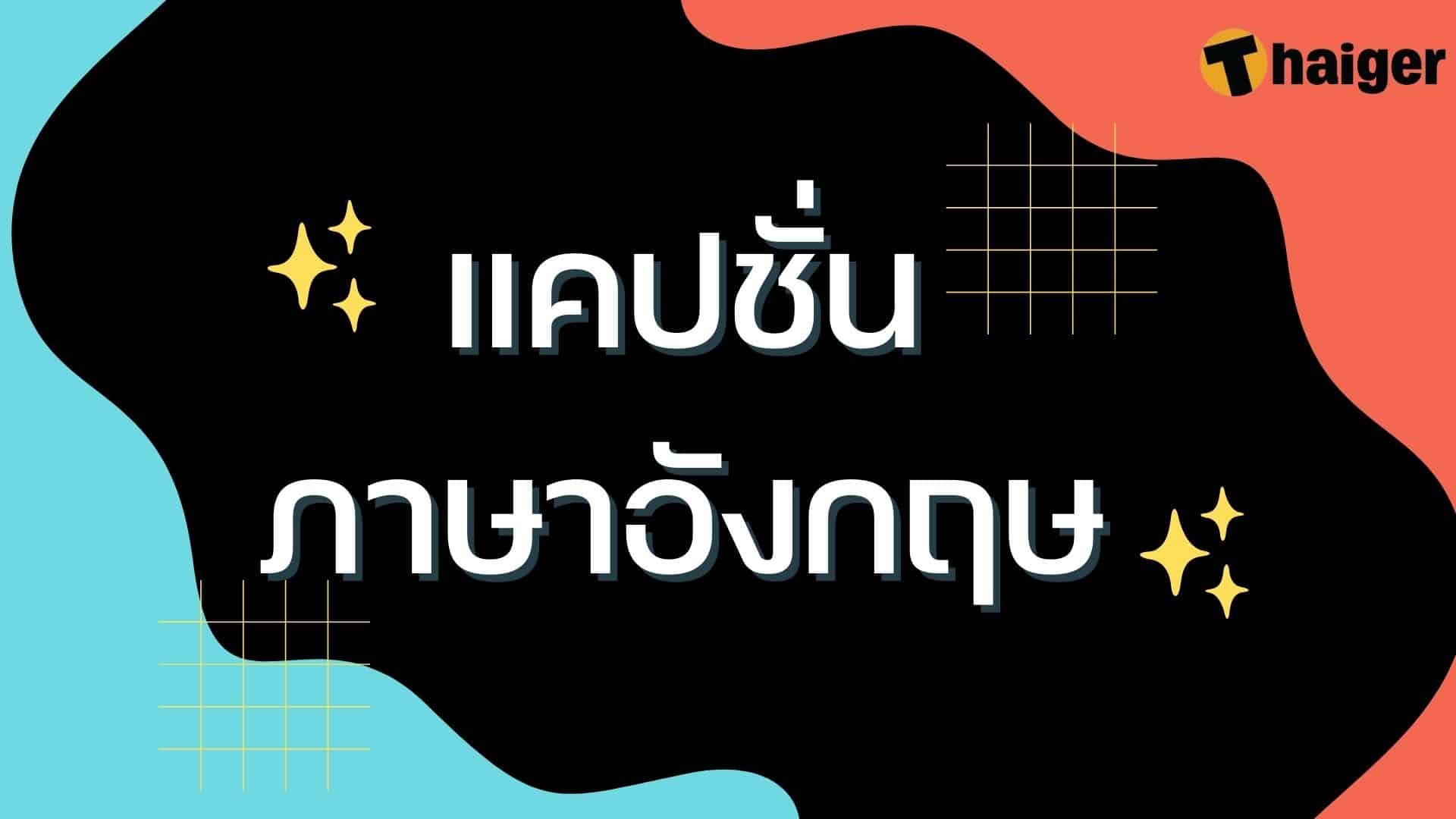

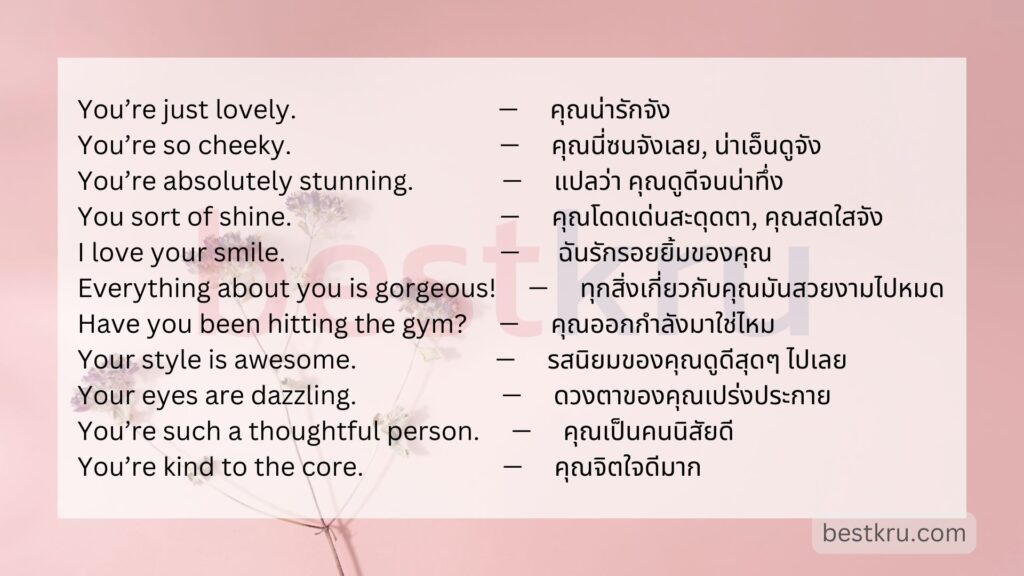
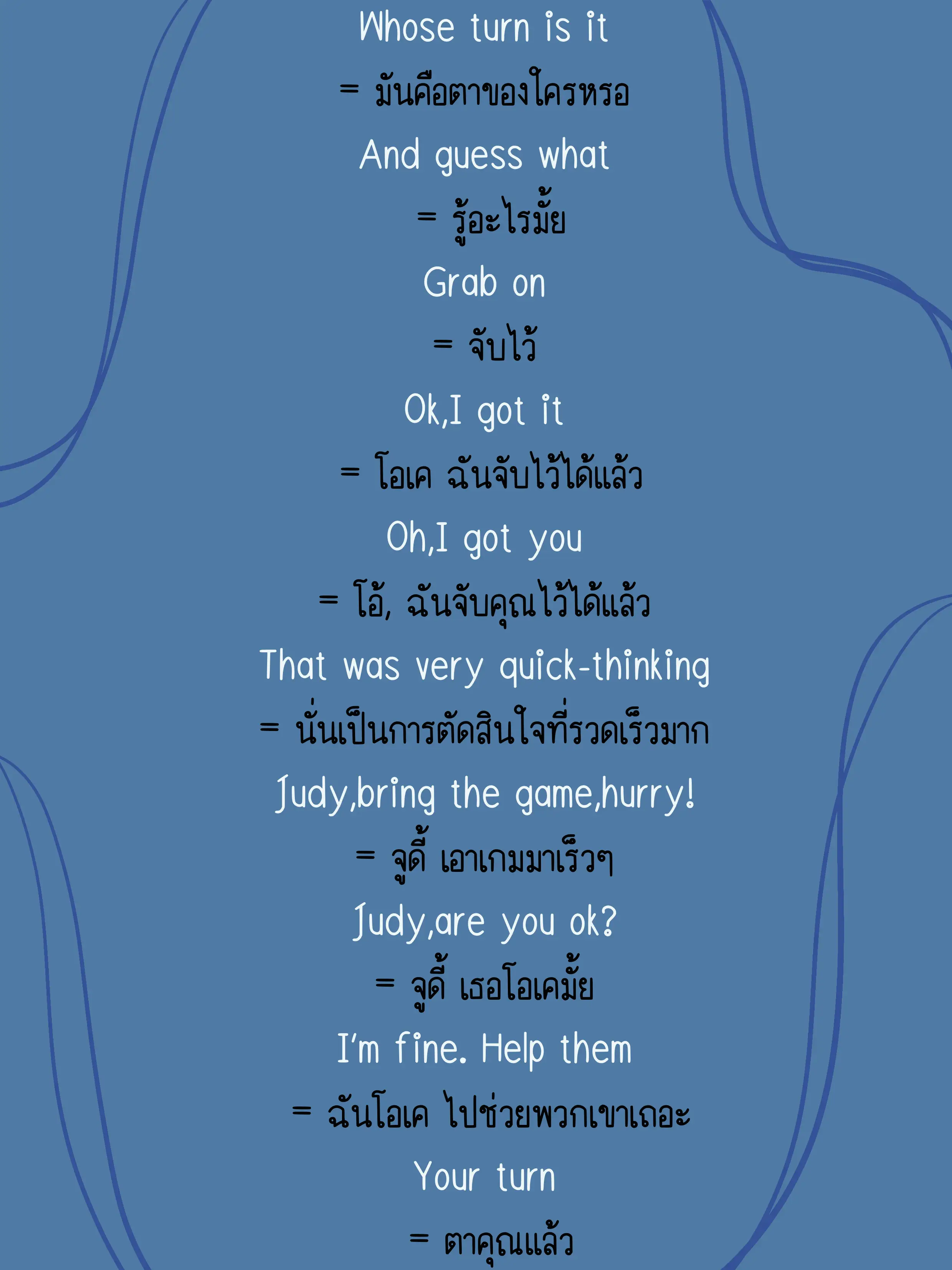
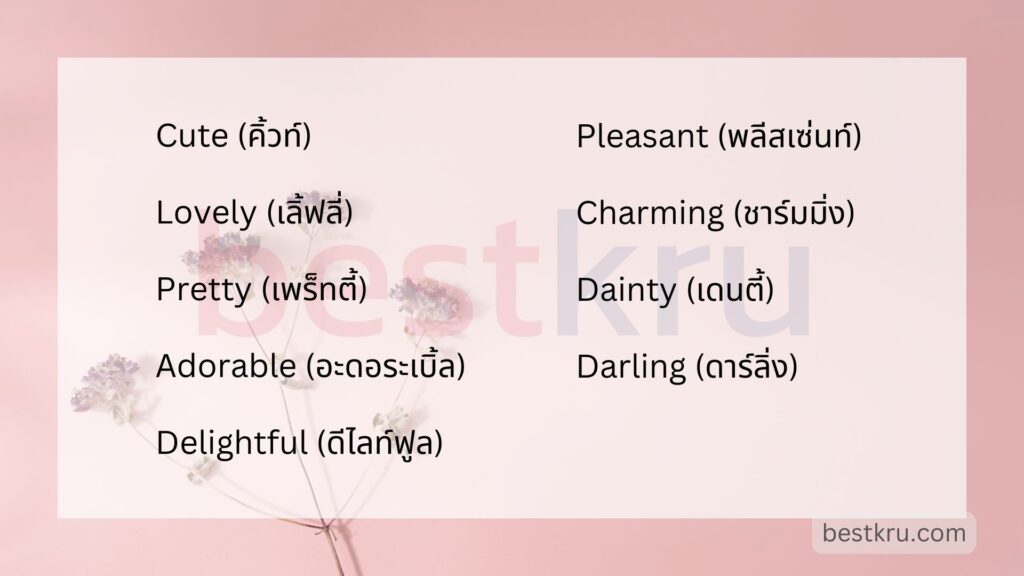


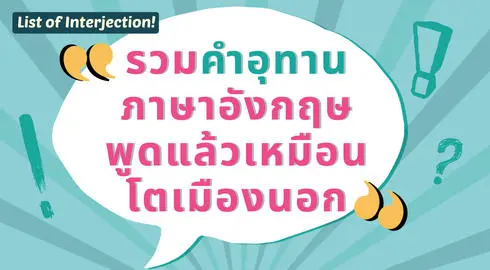

See more here: kientrucxaydungviet.net
Learn more about the topic เธอ คือ ใคร ภาษา อังกฤษ.
- เธอคือใคร (thoekhuekhain) แปลว่า – การแปลภาษาอังกฤษ
- *who is she* แปลว่าอะไร ดูความหมาย ตัวอย่างประโยค หมายความ …
- “เธอคือใคร (Tur Keu Krai)” by ETC | ดึงดูดใจ Deungdutjai
- Who is she แปลว่าอะไร ดูความหมาย ตัวอย่างประโยค หมายความว่า …
- รวมคำถามที่มีคำว่า Who ที่มีการใช้งานบ่อยๆในชีวิตประจำวัน ที่เรา …
- ทำไมการถามว่า who are you ถึงมองว่าไม่สุภาพ
See more: kientrucxaydungviet.net/category/%E0%B8%82%E0%B8%B2%E0%B8%A7%E0%B8%A5%E0%B8%B2%E0%B8%A7